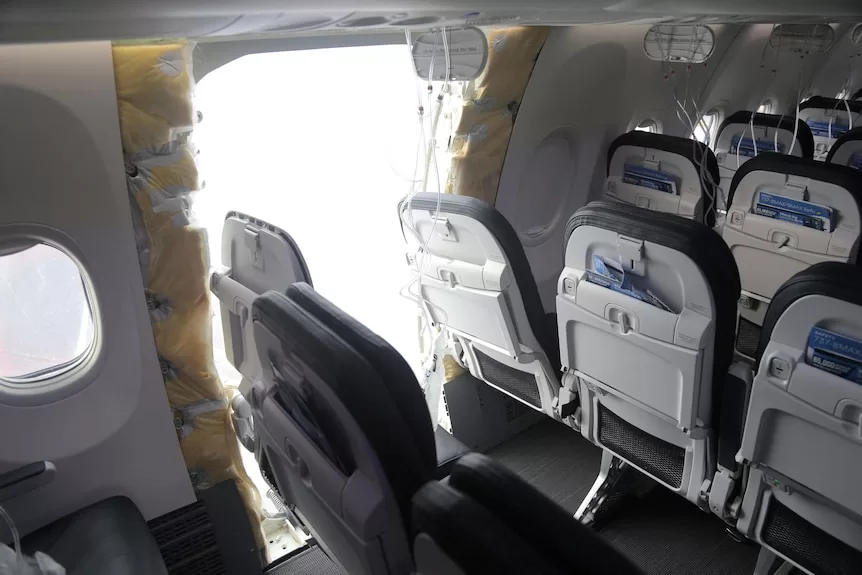Boeing says it will withdraw a request for a safety exemption that could have allowed US regulators to speed up certification of its coming 737 MAX 7 jet, in the latest fallout from the plane maker’s ongoing crisis.
US politicians had been pressuring the company to withdraw the request following a harrowing mid-air cabin blowout on January 5 that exposed numerous safety and quality control concerns at one of the world’s two major jet makers.
The withdrawal, first reported by the Reuters news agency, throws the anticipated timeline for certifying Boeing’s MAX 7 and the larger, better-selling MAX 10 into further doubt, because it may force Boeing to make design changes more quickly than it had planned.
CEO David Calhoun withdrew the exemption request after being asked to do so in meetings on Capitol Hill last week, as Boeing grappled with growing safety concerns following the mid-air incident on a 737 MAX 9 jet operated by Alaska Airlines.
No-one died in the incident, which left passengers staring at open space 16,000 feet above the ground and forced the pilots to make an emergency landing.
But the incident has turned into a full-blown safety and reputational crisis for Boeing that will slow plane production and risks it ceding further market share to rival plane maker Airbus.
Loading…
After its best-selling MAX family of jets resumed service in 2020 following fatal crashes in 2018 and 2019, Boeing had at one point forecast it would win approval for the MAX 7 and 10 by the end of 2022.
The head of the Federal Aviation Administration (FAA) has repeatedly declined to put any timetable on approval.
The ongoing delays have set back the fleet plans of major US carriers including Southwest Airlines and United Airlines, the biggest customers for the MAX 7 and MAX 10 respectively.
Boeing’s decision to withdraw the exemption request came ahead of the release of its fourth-quarter results on Wednesday.
Safety fix needed on existing planes
The exemption would have allowed the MAX 7 to be certified before making design changes to the nacelle inlet structure and engine anti-ice system to prevent overheating that could lead to severe damage or a failure of the engine inlet inner barrel.
A nacelle is the structure that holds an aircraft engine.
The MAX 10 will also require design changes if an exemption is not sought.
Boeing originally proposed the MAX 7 exemption run through May 2026 — the time period the company believed necessary to develop and certify design changes — but approval of the request was thrown into doubt after the Alaska Airlines accident.
“While we are confident that the proposed time-limited exemption for that system follows established FAA processes to ensure safe operation, we will instead incorporate an engineering solution that will be completed during the certification process,” Boeing said in a statement, without providing an estimate of how long that would take.
The FAA deferred comment to Boeing.
Dennis Tajer, a spokesperson for the union representing American Airlines pilots, said Boeing’s decision to withdraw the exemption request was good news, but questioned what Boeing and the FAA would do for the MAX 8 and 9 models.
“What are they doing about the planes that are flying now?” he said.
The FAA said last year Boeing was developing a design change to fix the problem with the nacelle inlet on the MAX 8 and 9, and it might require Boeing to put the fix in place on those planes in the future.
